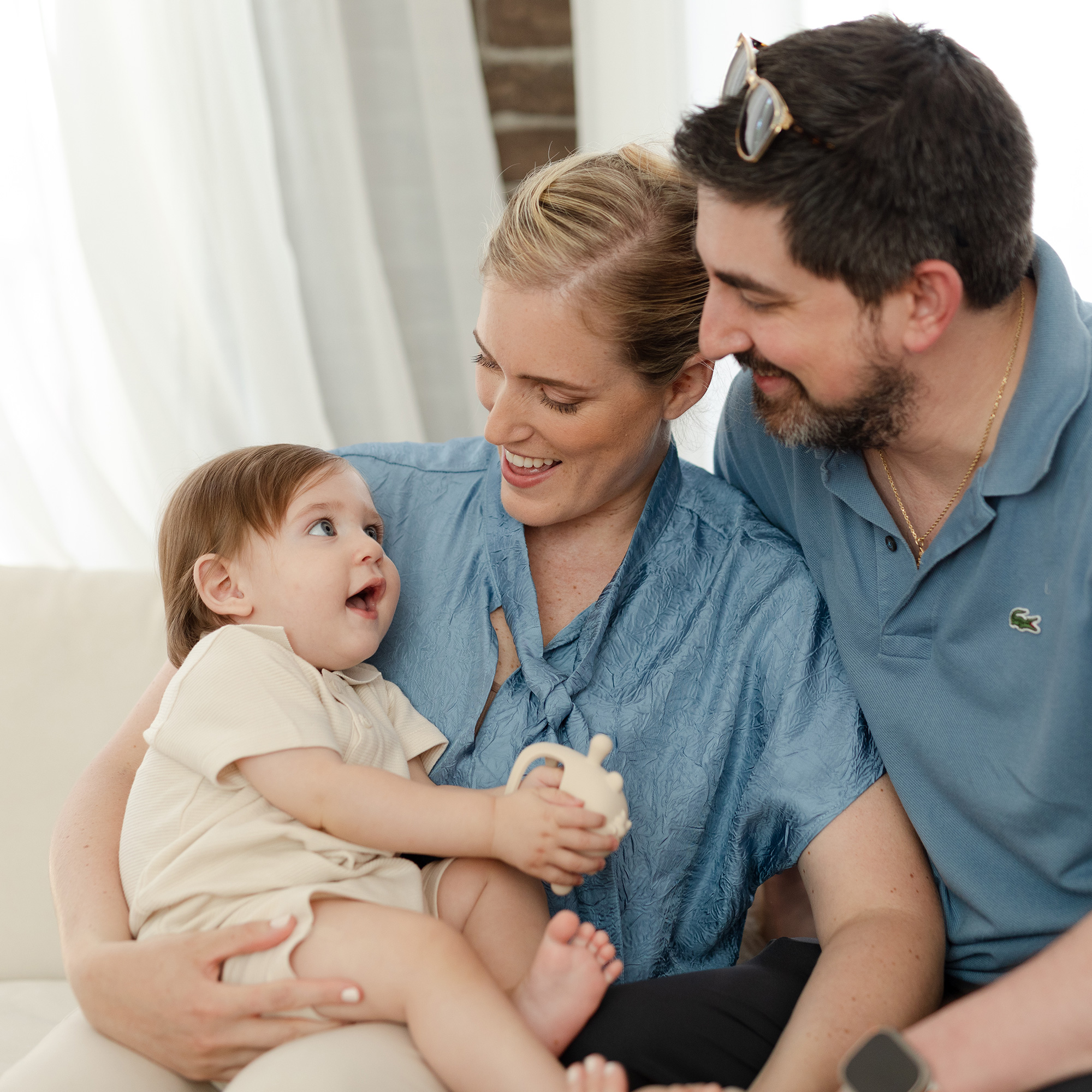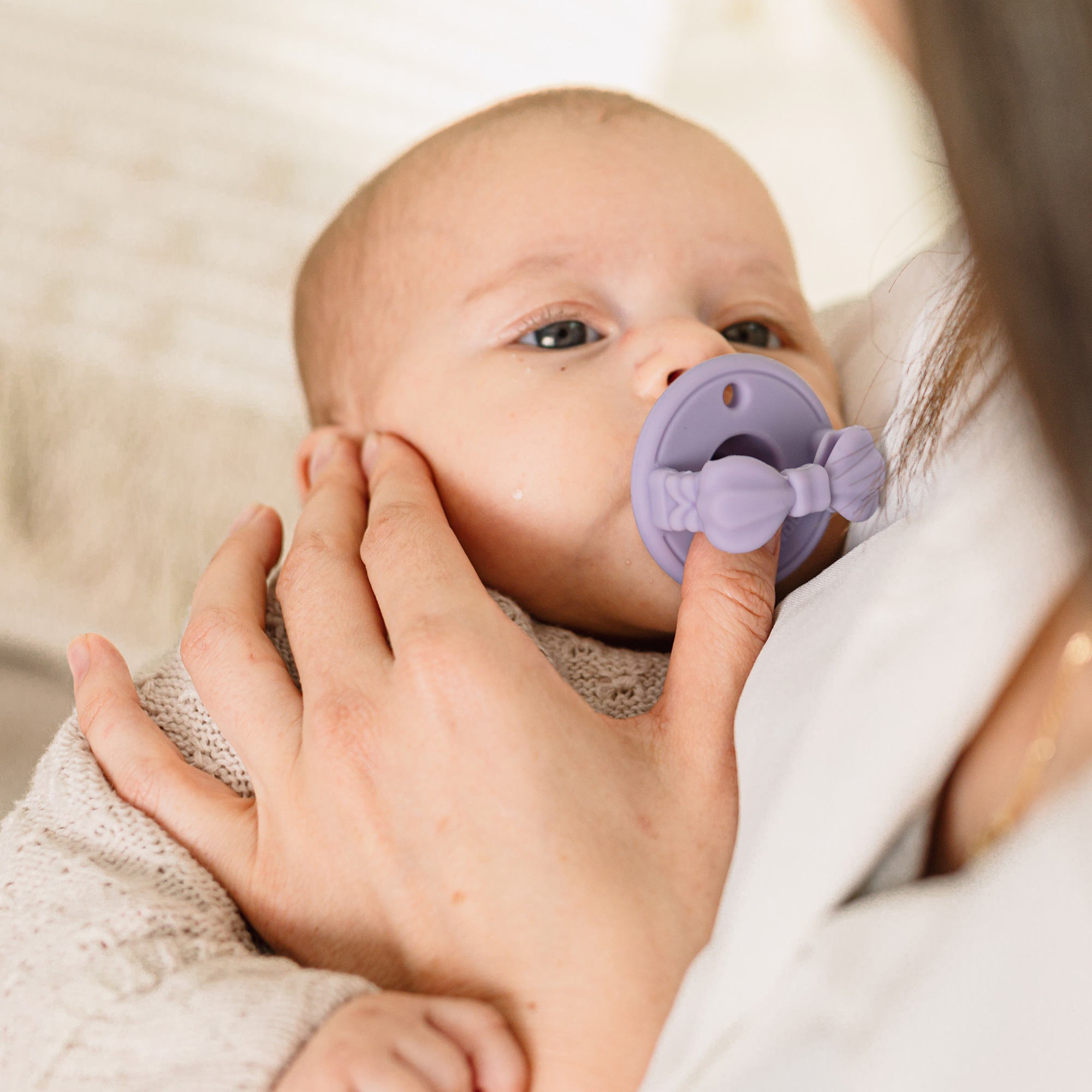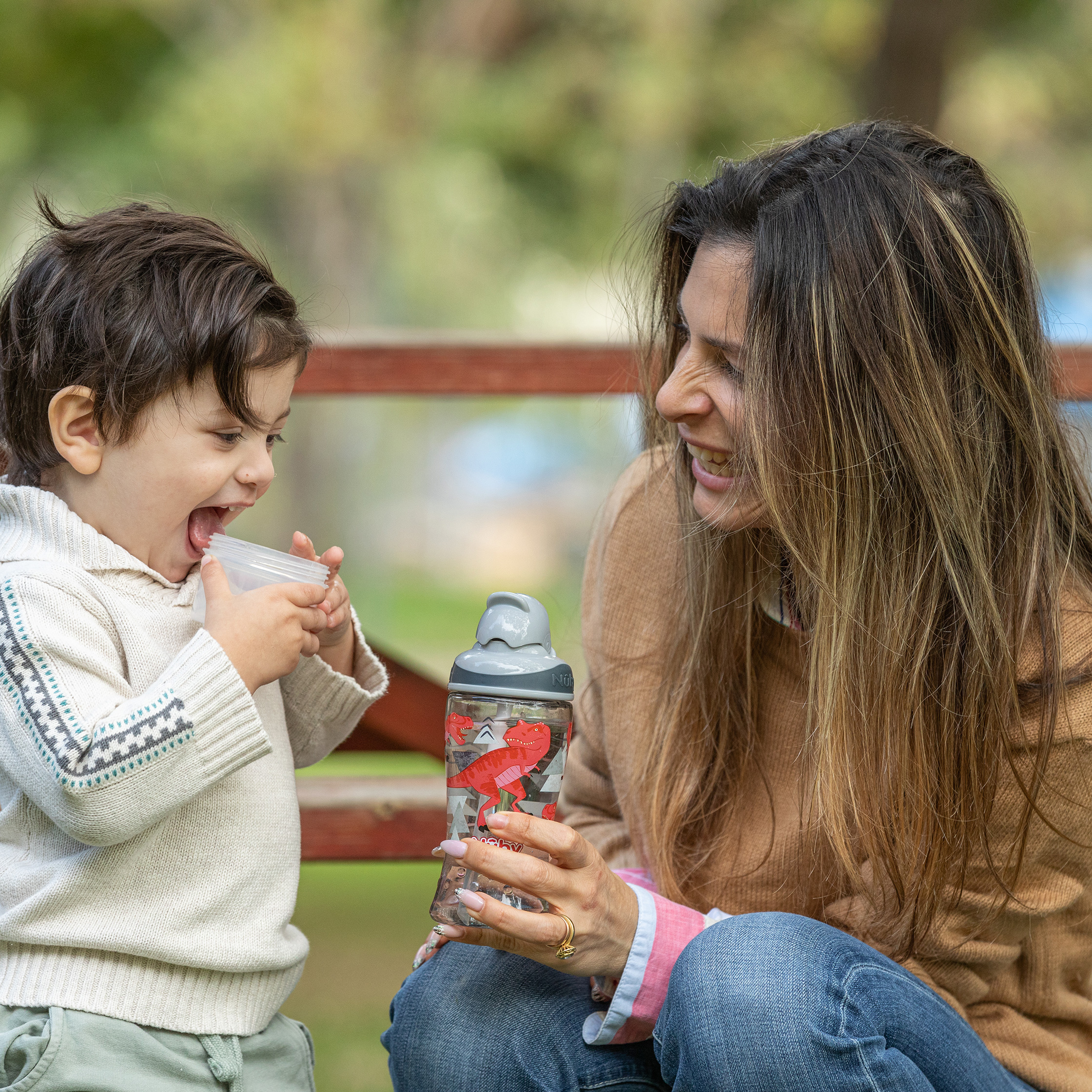Baby Allergies vs. Common Cold: How to Tell the Difference
When your baby starts sneezing or has a stuffy nose, it’s natural to start wondering, is this just a cold, or could it be allergies? It’s a common question for parents, and figuring it out can feel a little tricky (especially when the symptoms look almost the same).
Some small but helpful signs can point you in the right direction. In this post, we’re breaking it all down: what causes colds vs. allergies, what symptoms to look for, how to treat each, and when it’s time to check in with your pediatrician.
By the end, you’ll feel a lot more confident about what’s going on, and what steps to take to help your little one feel better.

What Are Allergies in Babies?
Allergies happen when your baby’s immune system overreacts to something that’s usually harmless, like pollen, dust, or pet dander. Their body treats it like a threat and releases chemicals (like histamine) to fight it off, which is what causes those allergy symptoms like sneezing, runny nose, or itchy eyes.
Triggers of Baby Allergies:
- Pollen (trees, grasses, and weeds)
- Dust and dust mites
- Pet dander (cats and dogs, in particular)
- Mold
- Laundry detergents and perfumed products
- Smoke or pollution
Allergies may be seasonal or occur all the time based on the cause. They may manifest as sneezing, watery eyes, or a continuously running nose.
How the Immune System Responds
When an allergen comes into your baby's system, their body identifies it as a threat and attempts to eliminate it. This creates the inflammation and pain typically experienced with allergies. Because babies have immature immune systems, they may be more sensitive to environmental allergens, particularly if there is a familial component.
What Causes the Common Cold in Babies
Viruses cause colds. If your baby touches an infected surface or is in close contact with a sick person, they can get a cold. And because babies tend to put things in their mouths, germs can spread easily.
Colds are really common among babies, especially if they're in daycare or have older siblings. Most infants can get multiple colds in the first year of life.
How Colds Are Spread:
- With sneezes or coughs
- Sharing bottles or toys
- Coming into contact with contaminated surfaces and then touching their nose or mouth
Difference Between Viral and Bacterial Infections
Most colds are caused by viruses, which means they don’t need antibiotics to go away. They usually run their course in about 7 to 10 days and while they can be super uncomfortable, they’re not usually anything to worry about long-term.
Bacterial infections, like strep throat or some ear infections, are a different story. These do sometimes need antibiotics to clear up properly. If left untreated, they can turn into something more serious.
Knowing whether your baby’s symptoms are from a virus or bacteria can help you avoid unnecessary meds and get them the right treatment when they need it. When in doubt, check with your pediatrician.
Allergies vs. Cold in Infants: Main Differences
It's simple to get allergies and colds confused since they both have sneezing, congestion, and a runny nose involved. However, the order and particular symptoms can distinguish them.
Rapid Comparison Chart:
| Symptom | Allergies | Cold |
|---|---|---|
| Runny Nose | Clear, persistent | May start clear, turn cloudy/yellow |
| Sneezing | Frequent, ongoing | Often at the beginning |
| Cough | Dry, may persist | Wet or dry, often short-term |
| Fever | Rare | Common (low-grade) |
| Itchy Eyes | Common | Rare |
| Duration | As long as they are exposed to an allergen | 7–10 days |
| Seasonality | Often seasonal or tied to triggers | Any time of year |
| Mucus | Clear and watery | Thicker, changes color |

How to Know if It's a Cold or Baby Allergies
Still not sure if it's allergies or a cold? Here are a few useful tips:
- Sudden vs. gradual symptoms: Symptoms of allergies can come on suddenly after being around a trigger, whereas colds can develop slowly.
- Length of symptoms: If it's more than a week and no better, allergies could be the main cause.
- Fever: A fever will typically indicate a cold. Allergies do not cause fever.
- Season of the year: Allergy symptoms may come on in the spring or autumn, depending on what's causing the allergies.
- Indoor or outdoor: If your infant's symptoms worsen outdoors (or in a room with dust), it may be allergies.
- Behavioral signals: Allergies may cause infants to rub their eyes or nose frequently, whereas colds can make infants more cranky due to discomfort.
Treating Home Allergies in the Baby
If you notice allergy symptoms, there are several methods you can try to give your baby relief
Easy Ways to Find Relief:
- Place an air purifier in your baby's room.
- Keep pets out of the nursery
- Wash your baby's hands and face after entering from the outdoors.
- Vacuum and dust frequently to lower triggers such as pet dander and dust mites.
- Use saline nasal drops to loosen congestion.
- Close windows during high-pollen seasons.
- Change your baby's clothes after outdoor time.
- Use hypoallergenic bedding and fragrance-free detergents.
When to Consider Allergy Testing:
If your baby’s symptoms just won’t go away or you notice they always flare up around certain times of the year or in certain places, it might be time to chat with your pediatrician about allergy testing.
Usually, it’s a simple skin or blood test that can help pinpoint what’s bothering your little one. Once you know what the trigger is, it’s a whole lot easier to figure out how to manage it and help your baby feel more comfortable.
Healing a Common Cold in Babies
It’s tough when there’s no quick fix for the common cold. But don’t worry, your baby can still feel better. Here’s what you can do to help comfort your little one.
What You Can Do:
- Provide lots of fluids (formula or breast milk).
- Use a cool-mist humidifier to relieve congestion.
- Elevate your baby's head slightly during sleep.
- Test saline sprays or a nasal suction bulb.
- Promote rest and quiet time.
- Give your baby warm baths to loosen mucus.
- Make sure they are feeding well to stay hydrated.
Supporting Immune Health
While there’s no way to fully prevent colds, keeping your baby’s immune system supported can help. Make sure they’re getting enough sleep, proper nutrition, and a clean environment. Limit exposure to sick individuals when possible.
Avoid over-the-counter cold medications unless your doctor advises otherwise; many are not recommended for infants.
When to Call the Doctor
The majority of colds and allergies can be treated at home, but there are occasions when a medical professional is required.
Seek Medical Advice If:
- Your infant has a fever above 100.4°F (38°C) (particularly in children under 3 months).
- Breathing is labored or your infant is wheezing.
- Symptoms persist for more than two weeks without improvement.
- You believe there is a food allergy or notice hives or swelling.
- There's an unexpected change in behavior such as lethargy or not wanting to eat.
- Your baby is dehydrated (dry mouth, fewer wet diapers).
- You observe ear pulling, which might indicate an ear infection.
If you ever doubt, it's always fine to call your pediatrician and seek advice.
Conclusion:
Figuring out whether your baby has a cold or allergies can definitely feel like a bit of detective work, but don’t stress, you’ve got this.
Pay attention to how the symptoms show up and how long they stick around. Take note of things like fever, itchy or watery eyes, and whether your baby seems worse outside or in certain environments. These little clues can help you sort out what’s really going on.
At the end of the day, a mix of observation and patience will get you through. And remember, you don’t have to have all the answers. Never hesitate to contact your pediatrician for help.
FAQs
What’s the difference between baby allergies and a cold?
Colds are caused by viruses and often come with a low fever. Allergies, on the other hand, are your baby’s reaction to things like pollen, dust, or pet dander, and they don’t cause a fever.
How long do allergy symptoms stick around compared to a cold?
Allergy symptoms can hang around as long as your baby’s around the trigger. Colds usually clear up in about a week.
Can babies really have allergies, or is it just a cold?
Yes, babies can have allergies even at a young age, especially if there’s a family history. It's not always just a cold.
When should I call the doctor about allergy symptoms?
If the symptoms aren't going away, messing with your baby’s sleep or feeding, or you think a certain food might be the issue, it’s a good idea to check in with your pediatrician.
How do I treat my baby’s symptoms based on if it’s a cold or allergies?
For allergies, try to avoid the trigger, run an air purifier, and use saline drops if needed. For colds, keep your baby well-hydrated, rested, and use a humidifier to ease stuffiness.
Do allergies cause coughing in babies, too?
Yes, they can. If your baby has a dry cough, especially with post-nasal drip, allergies could be the cause.
Are baby colds contagious?
They sure are. Colds spread through coughs, sneezes, and touching shared surfaces, so try to limit contact with anyone who’s sick.
Can my baby have both a cold and allergies at the same time?
Yes, and it can be confusing! If things don’t seem to add up, or you’re not sure what’s going on, don’t hesitate to call your doctor for peace of mind.
